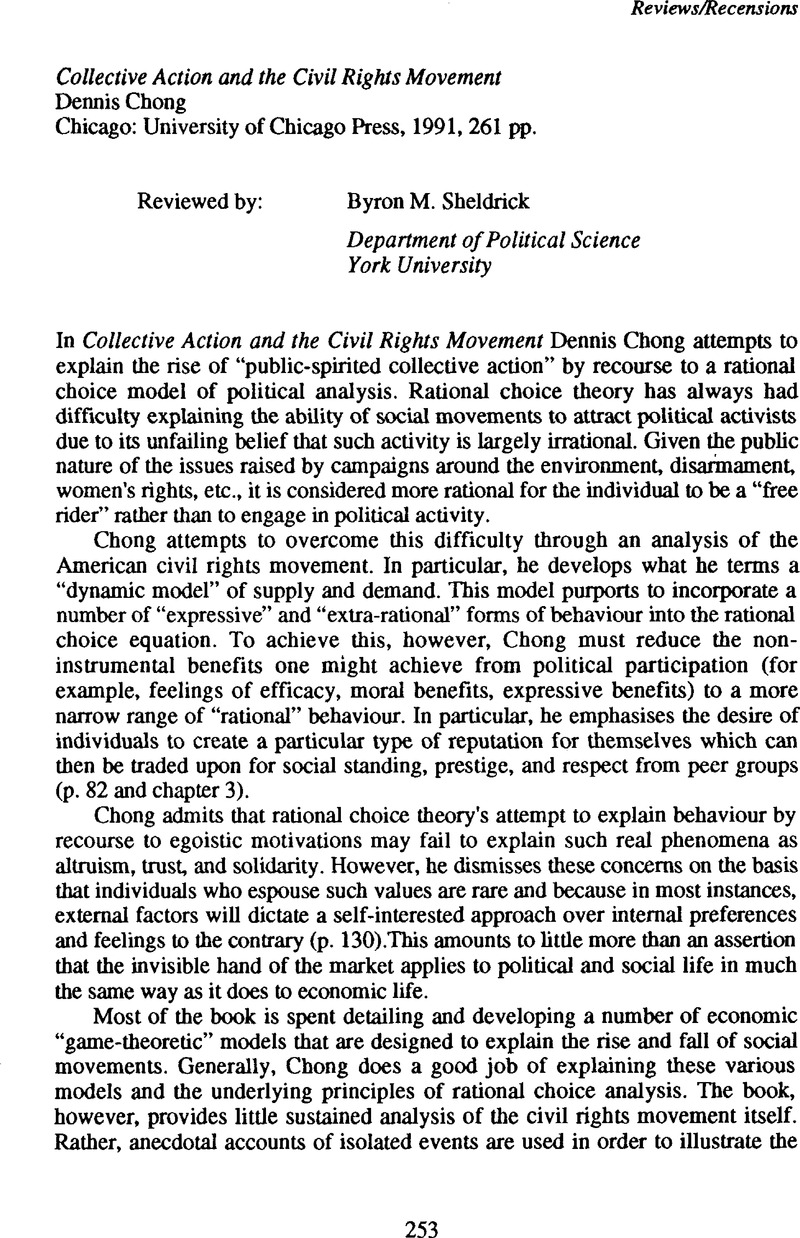No CrossRef data available.
Published online by Cambridge University Press: 18 July 2014

1. I would suggest that the basis for such an analysis can be found in the works of Antonio Gramsci. See Hoare, Quinton & Smith, Geoffrey, eds., Selections from the Prison Notebooks of Antonio Gramsci (New York: International Publishers, 1971)Google Scholar.
2. See, for example, Sydney Tarrow's work on protest in Italy [Tarrow, Sydney, Democracy and Disorder Protest and Politics in Italy, 1965-1975 (Oxford: Clarendon Press, 1989)Google Scholar] for a far more complex understanding of the factors that affect social movement protest.
3. I am indebted to a colleague for the insight that while rational choice theory may provide some clues to the dynamics of groups within the framework of a capitalist social order, it tells us nothing about bow to transcend that order. See Carolyn Basset, “Rational Choice and Comparative Politics: Principles, Prospects and Pitfalls” unpublished paper on file with the author.